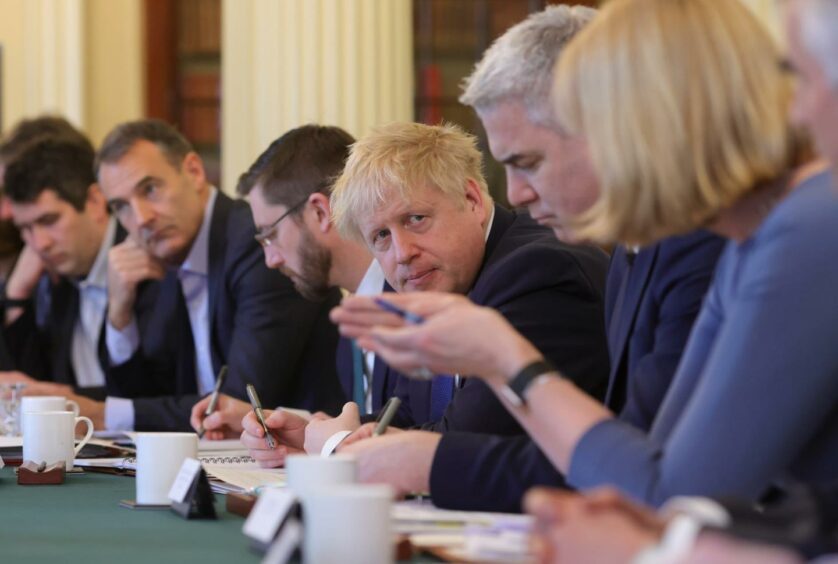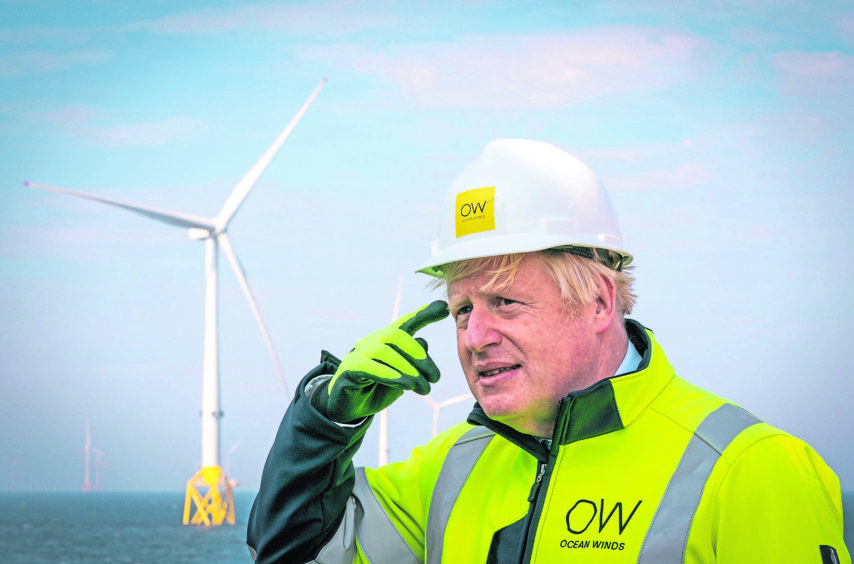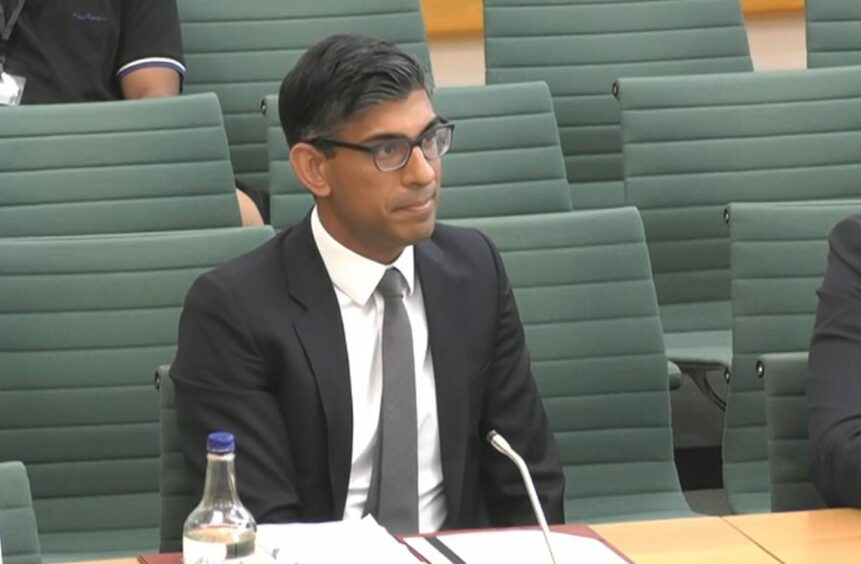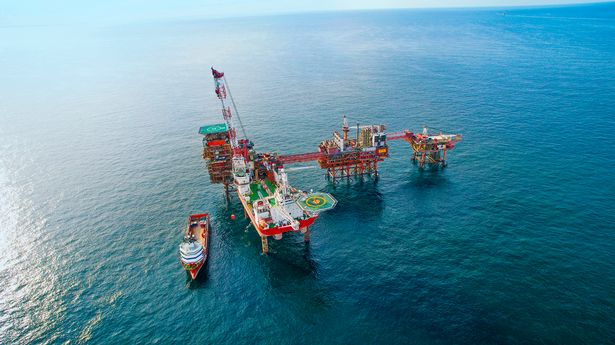 © Boris Johnson/ Twitter
© Boris Johnson/ Twitter Like much of his tenure as Prime Minister, Boris Johnson’s relationship with the energy sector has been somewhat rocky.
There have been highs – the North Sea Transitional Deal (NSTD) among the standouts – but the energy profits levy (EPL) has left a bitter taste in the mouth of industry.
Neivan Boroujerdi, research director, North Sea upstream at Wood Mackenzie, says his reign has “coincided with the most tumultuous period in the North Sea’s 50-year existence”.
There has been the Covid-19 pandemic, and the resulting price crash, all the way through to the eye-watering profits bring posted by firms.
While he was the Prime Minister that hosted COP26, he will perhaps be better remembered for an incoherent approach to the sector,” Jon Fitzpatrick, Gneiss
Now, with the beleaguered leader having announced he will be leaving Number 10, analysts have given their take on the impact of Johnson’s government on the North Sea.
Jon Fitzpatrick, managing director at Gneiss Energy, said: “Johnson was highly divisive throughout his time in No. 10, and this is perhaps matched by the peaks and troughs of his approach to the energy. While he was the Prime Minister that hosted COP26, he will perhaps be better remembered for an incoherent approach to the sector.
“Many of the positives that came from his 10-point plan were undone when his cabinet implemented an opportunistic windfall tax, and he lost more credibility as this coincided with his running cap-in-hand to Saudi Arabia and the UAE to ask them to produce more oil, only to be turned down.”
The end of the line
After a wave of resignations from Conservative ministers, the former-Mayor of London agreed to step aside on Thursday morning, before confirming his departure to the public that afternoon.
It follows months of criticism from across the House of Commons, particularly over the ‘party gate’ incident.
The release of a long-awaited report in May into drunken events held at Downing Street and Whitehall during lockdown highlighted a failure of leadership.
Just hours after the investigation was published, the then Chancellor Rishi Sunak unveiled the EPL, a windfall tax on the oil and gas sector designed to help families with the cost-of-living crisis.
Ashley Kelty, an analyst at investment bank Panmure Gordon, believes the policy was intended to divert attention away from the scandal.
EPL ‘populist policy’
He said: “I think the EPL is a bad policy – populist policy making which harms an industry that is vital to both energy security and the energy transition.
“I don’t believe it would have been imposed if the Government had not been under pressure over the party gate scandal and the concerted media efforts to force Johnson out.
“If windfall taxes were to be imposed, why were they not imposed on the pharmaceutical companies that made huge profits from the pandemic?”
Impact of investment relief dubious
Mr Boroujerdi gave a more nuanced view on the EPL, though he also highlighted that there are issues with the policy.
He said: “Views on the EPL are mixed and assurances that it will be phased out if prices return to ‘more normal levels’ have been greeted with broad scepticism in industry.
“While US$70/bbl was mentioned as a potential threshold, no guidance has been provided for gas which makes up half of the UK’s supply mix. A more progressive and uncertainty-reducing move would have been to formally link the petroleum tax rate to commodity prices.
“While we estimate the EPL will wipe out around 20% of UK company value, the investment allowances will soften the blow for those spending. The reality is that most projects able to take advantage of the terms are those that would have gone ahead anyway. The typically long lead times associated with upstream developments (and decarbonisation initiatives) mean these are not turn on-turn off investments. However, there is upside for short-cycle and “sanction-ready” developments that could take advantage of the levy period. This could lead to a reshuffling of project pecking orders within global portfolios.”
The North Sea Transition Deal
A big win for industry during Johnson’s time in charge was the signing of the NSTD, a pact that pledged government support in return for an acceleration of the transition.
Published in 2021, it was the first document of its kind anywhere in the world, and is held up as step change moment for the North Sea.
Mr Boroujerdi said: “The North Sea Transition Deal achieved during that same period saw the industry commit to reduce emissions by 50% by 2030 but there is work to do.
“With high prices set to prolong late-life infrastructure, electrification or earlier than planned field cessations will be required to meet emissions reduction goals.”
A ‘mixed’ bag
Overall, Mr Kelty says Johnson’s record on energy was “mixed”, with some promising moves that “didn’t go far enough”.
He said: “I believe that he was supportive of the wider energy industry, and this was shown by his encouragement of policies and legislation to get Government to overrule NIMBY council rulings on onshore drilling, and the recognition of the need to utilise domestic reserves after COP26.
“The energy security strategy was a step in the right direction, but it didn’t go far enough – I think pressure should have been put on Centrica to reopen the Rough gas store, and funding could have been provided in the near term to do so. This support could have been clawed back under the EPL anyway.”
The challenges haven’t gone away
Johnson will remain in place as caretaker until a replacement is appointed – the expectation is a new PM will be in place by the Conservative party conference in October.
With that, the starting pistol has been fired on a leadership contest, and a number of names have already been throw into the hat.
Professor Paul de Leeuw, director of RGU’s Energy Transition Institute, has urged whoever takes over the reins to engage with industry to overcome the myriad of challenges facing the UK.
He said: “Irrespective of all the political theatre playing out in UK government at the moment, the challenges associated with the climate emergency, the cost-of-living crisis and ensuring the nation’s energy security haven’t gone away.
“With the upcoming leadership changes, the UK and devolved governments have a real opportunity to turbo charge the delivery of the plans and ambitions already outlined.
“This will ensure that the UK develops an affordable, world class and low carbon energy system, which will provide new and high-quality jobs across the nation.
“Leadership here is key and it would be great to see a continued and high-profile commitment from the new government to work with the energy industry and other stakeholders to set this up for success.”
Melanie Grimmitt, partner and global head of energy at Pinsent Masons, said: “Notwithstanding the current political turmoil, it is critical to the country’s energy security, cost of living crisis and commitments to net zero, that the government continues to drive forward the strategies, policy and legislation required to enable the industry to deliver the increase in lower carbon, lower cost electricity generation required.
“We have seen from the CfD auction results today that there is healthy pipeline of projects coming forward and we must ensure investors continue to see that the UK has a stable political and economic climate and remains an attractive place for energy market investment.”





